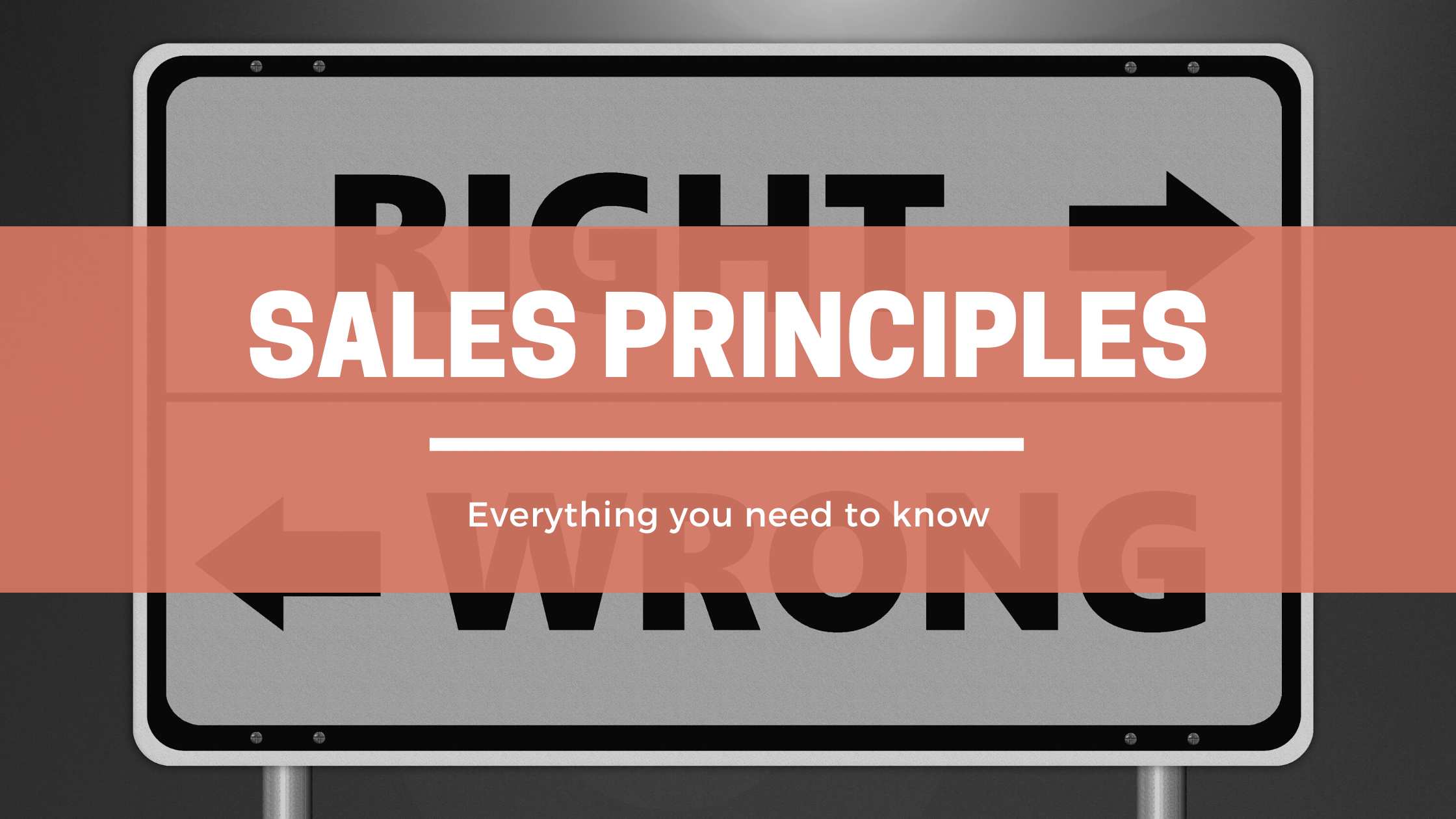What is sales principles?
Sales principles refer to the fundamental concepts and practices that guide the process of selling goods or services. These principles are designed to help sales professionals effectively communicate the value of a product or service to potential customers and persuade them to make a purchase.
What is an example of sales principle?
Here is an example of a sales principle:
“Treat others with respect and kindness, even when they do not return the favor.”
This guiding principle could be used to guide behavior in a variety of situations, such as interacting with coworkers, dealing with difficult customers, or responding to criticism. It suggests that it is important to treat others with respect and kindness, even when they do not do the same in return. This principle could help an individual or organization cultivate a positive and respectful culture, and make it easier to resolve conflicts and build strong relationships.
What are the types of sales principles?
There are many different types of sales principles, and the specific principles that are emphasized may vary depending on the industry, product or service being sold, and the target customer base. Some common types of sales principles include:
- Customer interaction principles: how you interact with customers.
- Workplace principles: how you should navigate coworker interactions.
- Self principles: how you should navigate your own life.
What are the sales principles?
Here are some powerful sales principles:
Customers buy value
Customers buy value when they perceive that the benefits of a product or service outweigh the costs, both financial and non-financial. In other words, they believe that the product or service will provide value to them in some way. This value could come in the form of tangible benefits, such as improved performance or increased convenience, or intangible benefits, such as improved quality of life or increased status.
Effective sales professionals are able to identify and communicate the value of their product or service to potential customers in a way that is relevant and meaningful to them. This may involve highlighting specific features or benefits that address the customer’s needs or wants, or demonstrating how the product or service compares to competitors in terms of value. By focusing on value, sales professionals can help customers make informed purchasing decisions that align with their needs and interests.
For example, you could quite easily sell someone $100 for $10. The challenge lies in convincing someone that they are buying something more valuable than the cost.
Believe in what you sell
It is important to believe in what you sell because it can help you effectively communicate the value of the product or service to potential customers. When you believe in what you are selling, you are more likely to be passionate and enthusiastic about it, and this can be contagious. Potential customers are more likely to be interested in a product or service when the salesperson is genuinely enthusiastic about it and believes in its value.
Believing in what you sell can also help you handle objections and overcome objections more effectively. When you are confident in the value of the product or service, it is easier to address concerns and objections that the customer may have, and to persuade them to make a purchase.
In addition, believing in what you sell can help you build credibility and trust with potential customers. When you are able to clearly and confidently explain the benefits of the product or service, it can help customers feel more confident in their decision to purchase.
Overall, believing in what you sell is important because it helps you effectively communicate the value of the product or service to potential customers, which can increase the chances of making a sale.
Consistency is key
Staying consistent in sales is important because it helps build credibility and trust with potential customers. When sales professionals are consistent in their approach, messaging, and follow-through, it helps establish a sense of reliability and dependability. This can make it easier for customers to feel confident in their decision to purchase and can increase the chances of making a sale.
Similarly, consistency is crucial for maintaining a healthy sales pipeline, hitting target, and getting commission.
Stay curious
Staying curious in sales is important because it helps sales professionals better understand the needs and interests of potential customers. By asking questions and seeking to learn more about the customer, sales professionals can tailor their sales pitch to meet the specific needs of the customer and increase the chances of making a sale. Curiosity can also help sales professionals stay up-to-date on industry trends and developments, which can be valuable in positioning their products or services as relevant and valuable to customers.
Remember to be human
It is important to remember to be human in sales because it helps build rapport and establish a sense of trust with potential customers. Customers are more likely to be interested in a product or service when they feel like they are interacting with a real person who cares about their needs and interests. By showing empathy and understanding, sales professionals can build stronger relationships with customers and increase the chances of making a sale.
Maintain a strong sales mindset
Maintaining a strong mindset in sales is important because it helps sales professionals stay focused and motivated, even in the face of rejection or setbacks. A strong mindset can help sales professionals stay positive and resilient, and can help them stay committed to achieving their goals. This can be especially important in sales, where rejection and disappointment are common, and maintaining a strong mindset can help sales professionals persevere and continue to pursue new opportunities.
How to choose guiding principles
Here are some steps you can follow to choose guiding principles for yourself or your organization:
- Reflect on your values: Consider what is most important to you and what values you want to prioritize in your personal or professional life.
- Determine your goals: Think about what you want to achieve, both in the short-term and long-term, and consider how your guiding principles can help you reach those goals.
- Consider your audience: Think about who you are trying to influence or inspire with your guiding principles, and consider what principles would be most relevant and meaningful to them.
- Keep it simple: Choose a small number of guiding principles that are easy to remember and apply in a variety of situations.
- Make them actionable: Choose guiding principles that are specific and actionable, rather than abstract or vague.
- Test them out: Try applying your guiding principles in different situations and see how they work for you. Be open to revising or adjusting your principles as needed.
- Communicate them: Share your guiding principles with others and make them a part of your personal or professional brand.
What are the 7 steps of sales?
There are many different approaches to the sales process, and the specific steps may vary depending on the industry, product or service being sold, and the target customer base. Here are seven common steps that are often included in the sales process:
- Prospecting: Identifying potential customers who are likely to be interested in the product or service being sold.
- Pre-qualifying: Determining whether a potential customer is a good fit for the product or service, and whether it is worth pursuing a sales opportunity.
- Approaching: Making initial contact with the customer and establishing a relationship.
- Presenting: Communicating the features and benefits of the product or service to the customer.
- Handling objections: Addressing any concerns or objections that the customer may have in a positive and persuasive manner.
- Closing: Persuading the customer to make a purchase and finalizing the transaction.
- Follow-up: Staying in touch with the customer after the sale and providing ongoing support and assistance as needed.
What are the 3 most important things in sales?
There are many factors that can contribute to success in sales, and the specific things that are most important may vary depending on the context. Here are three things that are often considered important in sales:
- Understanding the customer: It is important to understand the needs and interests of potential customers in order to effectively communicate the value of the product or service to them.
- Building rapport and trust: Establishing a good relationship with the customer and building trust can help increase the chances of making a sale.
- Closing the sale: Persuading the customer to make a purchase and finalizing the transaction is a critical step in the sales process.

